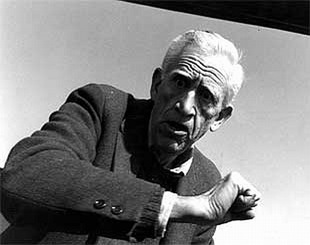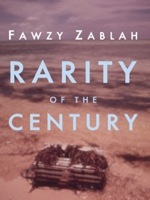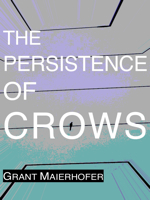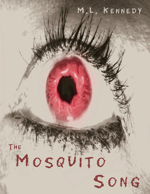BOARD
Brad Listi & Justin Benton
The Nervous Breakdown, 2012
[a]
It makes sense for BOARD’s subtitle to be “voices from the nervous breakdown” and not “comments from the nervous breakdown” because this book isn’t comments, it’s the voices of people. People who could be anyone. Maybe you’re in this book and you don’t even know it. Although I doubt it.
I would think, given the nature of The Nervous Breakdown’s commenters, the people whose voices are heard in BOARD are aware of it. And even though these people’s comments still sing without the actual sounds of their words, at least they’re carried into print, which is, as Megan Boyle blurbs on the back of the book, sweet.
A book, as an object, is probably not as permanent as whatever the Internet is doing, but a book is alive on its own. A book has gained independence. No electrical charge has to turn its processor on and light its screen. A book is always at your service and yet separate from everything.
For many people it’s not obvious how many lives go into books. From the writers to the editors to the printmakers to the distributors to the reviewers to the readers, and all the hands in between, a book is a celebration of disciplines.
What I like about BOARD is how loudly this festivity sounds. Hundreds, thousands of IP addresses unknowingly gelled into BOARD: a paradigm of technological wholism, a book of innumerable writers.
“Everything happens for a reason” seems like putting the cart before the horse. We can find a reason for everything that happens to us. That’s what we do: We make meaning. We are meaning-making machines.
Remember that: we are meaning-making machines. Approaching this book with this idea in mind will enhance things.
[b]
Each of the six chapters are mined from countless comment boards on The Nervous Breakdown and nested into something that, with the help of the reader, generates meaning.
In their authors’ note, Brad Listi & Justin Benton make it clear: this book is an act of literary collage. After reading this opening, I thought, flarf: “a style of poetry in which poems are formed by a collage of quasi-random found words and phrases.”
Imagine owning a restaurant with hidden mics on every table. Come closing time you take the audio recordings and mash the snippets, leaving a second of blank space to separate one from the other. Some snippets are monologues, while others dialogues nested into a scene.
Such a recording would be interesting to listen to because of its stretch of subjects and its addictive momentum. And not much design would be needed to preserve this movement – we are the ADD generation, eager for information – however, were someone to take the time to arrange each conversation, piece them together into something greater than the parts, well, then you’d get something a lot like BOARD.
This book is an act of literary collage: first reading this I focused on ‘literary collage’, but now I’m more interested in ‘act’, as in action. Given the same palette no two paintings are alike, which is to say, even though everyone has access to the same comments in BOARD – all they have to do is visit TNB and copy and paste away – no two people would parse this information the same way. Raw materials are given meaning, they are not born with it.
And then all of a sudden, out of nowhere, a minute into it or whatever, there’s the big horrific explosion and the confused silence and this giant fiery ball and a long trail of smoke, and the announcers on television are stammering through the horror and disbelief, and the teachers are in shock, standing there with hands over their mouths, trying to figure out what to do.
I feel like, if placed in a fire with other books, BOARD would burn bluest.
[c]
Every book review gets its heartbeat from the book it’s reviewing.
[d]
At times it reads like a book of maxims:
Cat and cat owner have to have equal hatred for each other for things to work out.
At times like confessions:
I got my first dildo at 17.
At times like factoids:
We should remember that the Olympic torch relay was invented by Joseph Goebbels for the glorification of the Nazi regime and was not part of the classical games.
At times like required reading in sociology class:
The blogosphere, I think it’s a huge net positive in human discourse. Not perfect, often very sloppy and self-indulgent, but better than the alternative.
At times like neologism:
I’ve discovered more than a couple Googlegangers, and they’re all younger and more athletic than me. This is slightly depressing.
At times like a famous still from The Office:
You miss 100% of the shots you never take.
And yet, when taken as a whole, BOARD has the coherency of an interloper’s journal.
This begs the question: what kind of people are Brad & Justin?
[e]
This, I think, is Brad Listi:

The RV behind him isn’t moving. I like that Brad Listi took a picture like this even though this is the past. He has moved on to a wife and a two-year-old and therefore needs to make more money than he did when he was driving recklessly around the country. He’s a hardworking networked writer living in Los Angeles who increasingly believes in luck. He’s from the Midwest.
Anyone who takes a picture in front of an RV and looks like he/she has been living in said RV for several days is good in my book.
This, I think, is Justin Benton:

The patriotism behind him is moving. He’s drinking whisky straight from a tumbler. And that looks like an ice cube suspended in the ambrosia. He’s wearing a shirt under a shirt he found on top of the stack in his dirty clothes hamper, which is cool. The Christmas lights are icing on the cake.
Obviously these pictures showcase Brad Listi & Justin Benton’s empathy. This is a good quality for the authors of books like BOARD to have. Imagine another group of two people attempting the same feat, the only difference being their complete lack of empathy, which is to say, they are sociopaths.
[f]
Noteworthy: Brad Listi & Justin Benton are authors, not editors, of BOARD. It’s an authors’ note at the beginning of the book, not an editors’ note.

Even though Brad and Justin didn’t write this book, I don’t think calling themselves authors is misleading, partly because I feel like Brad & Justin aren’t people who would intentionally mislead, and partly because I know they are authors.
But in today’s book industry, is there a difference between authors and editors? It seems like, apart from rare cases, authors and editors put heavy hands into a manuscript, sometimes bending it into a different monolith. But I could be wrong. I could always be wrong.
[g]
Some parts of BOARD may not grip you as much as others. Being a predictable person, the chapter I most wanted not to finish was the depth of a corndog. It is home to the voices of writers on The Nervous Breakdown.
I don’t need a plot. I want to live in your gray matter.
I know writers are a certain kind of person. Pretty much every writer thinks what every other writer thinks. It’s true: there’s nothing new under the sun. But it’s still fun reading the thoughts of writers.
Reading the depth of a corndog made me think about what the authors didn’t include in BOARD, namely, the original posts that sparked these conversations. I began to think about the submission guidelines for The Nervous Breakdown. It seems like anyone willing to share work with the community could. I started imagining what it would be like to become a part of TNB.
I thought, It’s like an iceberg.
I thought, What matters isn’t the book, it’s the dialogue underneath the book.
I thought, People matter.
I thought, We all make meaning.
I thought, And some of us encapsulate it.
I thought, Let’s go outside and take long exposures of the moon.
And I tweeted this into a field of people and thought about J.D. Salinger, who died of natural causes in 2010, at the age of 91.
I am 60 years old, and the older I get, the more I fade. I am nearly invisible now. I am nearly inaudible. When I write, if someone reads it, there is a certain substance I gain. I am seen again; I am heard again.
Things made sense.

MY RATING = ![]()
![]()
![]()
![]()
![]()









